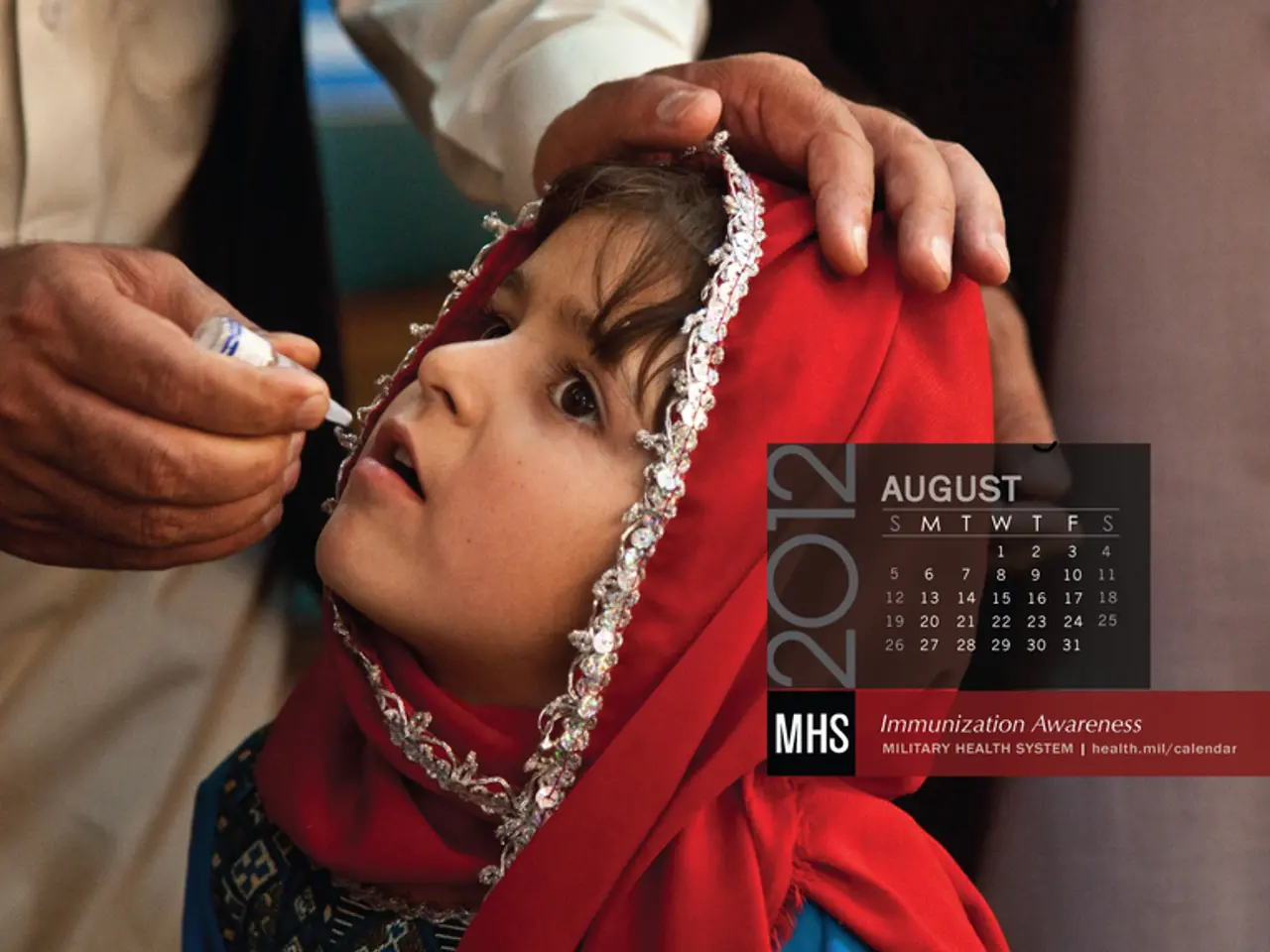Recommended Vaccines for Newborn Babies in Nigeria
Nigeria's vaccination coverage remains suboptimal, with only about 23% of children fully immunized against vaccine-preventable diseases[1]. This situation, particularly in rural and northern regions, contributes to persistent outbreaks of diseases like cholera and high child mortality from preventable illnesses[2].
Key challenges in ensuring access to essential vaccines for newborns and children in Nigeria include geographical barriers and hard-to-reach areas, community resistance and vaccine hesitancy, health system weaknesses, socioeconomic factors, and international funding fluctuations[1].
Vaccination campaigns face difficulties in remote rural and some northern communities, limiting access and uptake[1][2]. Initial resistance to new vaccines, such as the malaria vaccine, required health workers to build trust through education and by demonstrating vaccine safety within their own families[1]. Nigeria's weak primary healthcare infrastructure, unreliable cold chain systems, and shortages of trained personnel affect vaccine availability and delivery[3].
Poverty, low maternal health literacy, and indirect costs such as transportation or time lost contribute to inequitable access and reduced vaccination rates[2][4]. Potential decreases in donor support and aid threaten the sustainability of immunization programs critical for Nigeria's vaccine coverage progress[4].
Efforts to improve vaccine coverage include expanding vaccination programs in community settings, health education, and introducing new vaccines like the malaria vaccine with increasing uptake over time[1][3]. Establishing mobile vaccination clinics and outreach programs can help address the urban-rural disparity[5].
It is highly encouraged that parents strictly follow the recommended vaccination schedule provided by healthcare professionals[6]. Proper storage of vaccines is essential to maintain their potency and effectiveness[7]. Investing in mobile vaccination units and strengthening community healthcare centers can improve accessibility in remote areas[8].
Addressing misinformation, promoting vaccine education, and enhancing trust in healthcare systems can help combat hesitancy[9]. Collaborating with international organizations, implementing temperature monitoring technologies, and regular maintenance can strengthen the cold chain[10]. Engaging community leaders, religious institutions, and providing factual information can help overcome concerns[11].
By vaccinating Nigerian newborns, we can effectively prevent the spread of diseases, reduce child mortality rates, and contribute to a healthier and safer society[12]. Vaccines play a vital role in protecting infants from potentially life-threatening diseases and improving overall public health[13]. It is our collective responsibility to prioritize the well-being of our children and ensure they receive the necessary protection through vaccinations[14].
References:
- Nigeria: Vaccine-preventable diseases and immunization
- Nigeria's Immunization Programme: Challenges and Opportunities
- Vaccine-preventable diseases in Nigeria
- Immunization in Nigeria: current status and challenges
- Improving vaccine access in remote and rural areas of Nigeria
- Recommended immunization schedule for infants and children in Nigeria
- Proper storage of vaccines essential for their potency and effectiveness
- Investing in mobile vaccination units and community healthcare centers for improved accessibility in remote areas
- Addressing misinformation, promoting vaccine education, and enhancing trust in healthcare systems can help combat hesitancy
- Collaborating with international organizations, implementing temperature monitoring technologies, and regular maintenance can strengthen the cold chain
- Engaging community leaders, religious institutions, and providing factual information can help overcome concerns
- By vaccinating Nigerian newborns, we can effectively prevent the spread of diseases, reduce child mortality rates, and contribute to a healthier and safer society
- Vaccines play a vital role in protecting infants from potentially life-threatening diseases and improving overall public health
- It is our collective responsibility to prioritize the well-being of our children and ensure they receive the necessary protection through vaccinations
- The challenges of ensuring access to essential vaccines for children in Nigeria include community resistance, geographical barriers, and socioeconomic factors.
- Vaccinating Nigerian newborns can help prevent the spread of diseases, reduce child mortality rates, and contribute to a healthier and safer society.
- Parents are encouraged to strictly follow the recommended vaccination schedule provided by healthcare professionals for the protection of their children.
- Proper storage of vaccines is necessary to maintain their potency and effectiveness, while efforts like mobile vaccination clinics and health education can improve accessibility in remote areas.
- Addressing misinformation, promoting vaccine education, and enhancing trust in healthcare systems can help combat hesitancy in rural and northern communities where vaccination campaigns face difficulties.




